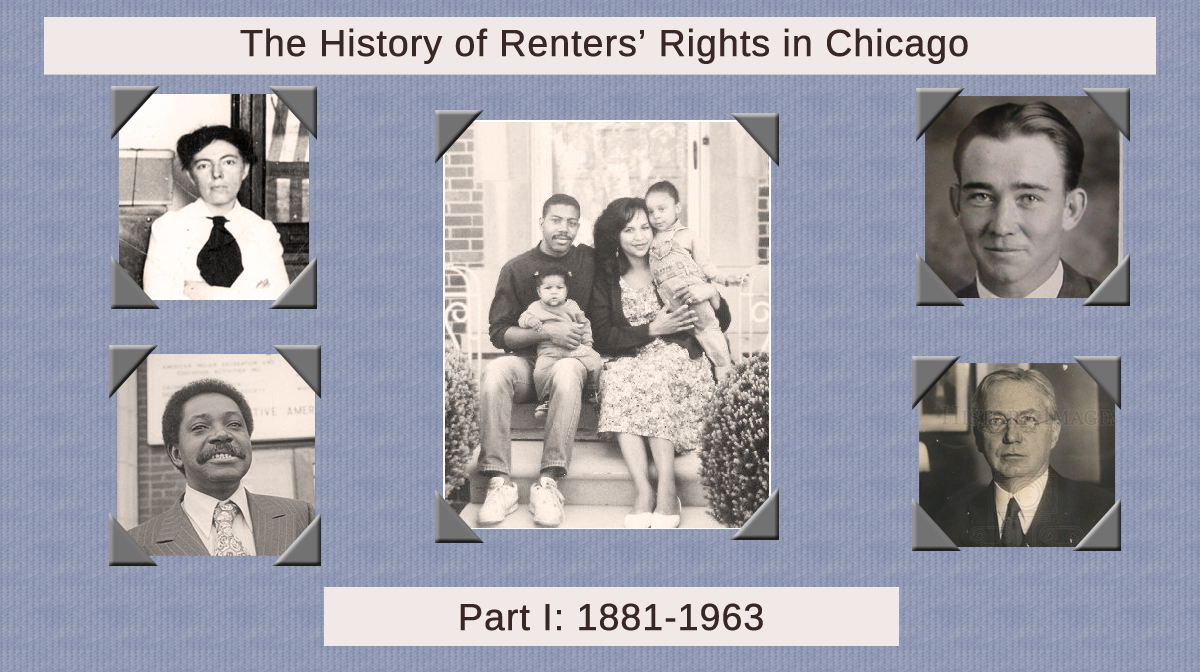I made several visits to landlord-tenant court that summer [of 1966] as part of my work with the tenants. During one of my visits there, an event occurred that has stuck in my mind as a vivid tableau. The cases were being called by the clerk when a quite elderly, thin, white woman rose from her seat in response to hearing her name. Her gait was quite slow - stooped over, and supported by a wooden cane. She was dressed in a frilly, long white dress and a white hat with a veil. It struck me that she had picked out her finest clothes to wear that morning. Perhaps her generation thought it appropriate to dress up for a court appearance - like going to church. But this was no church. When she was about half way to the front of the court – even before she passed the bar - the judge impatiently asked, "Have you paid the rent?"
She looked up at him as best she could and began softly speaking. "No, but... ."
She was cut off in midsentence by the court, curtly saying, "Judgment for landlord. Call the next case."
The woman continued to slowly approach the bench, raising her right hand - her left still resting on the cane - as if she was trying to get the judge's attention. Her apparent desire to continue talking was stopped by the judge who without a hint of emotion said, "Maam, your case has been decided. You can go now."
Crestfallen, she slowly turned and with small, careful steps, worked her way out the rear of the room. The next case was called and decided before she reached the courtroom door. A few tenants watched her sadly. Most people in the room paid her no attention as additional cases were called and quickly disposed of. I was stunned.
--Richard H. Chused, The Roots of Jack Spring v. Little, 40 J. Marshall L. Rev. 395 (2007)
The rights of tenants and landlords in Chicago are protected by numerous laws, but primarily by a single massive section of municipal code called the Chicago Residential Landlord Tenant Ordinance (CRLTO). It's 10,000 words long. It's been called the “most tenant-friendly legislation of its kind in the United States.” It's also been called notorious, harsh, overly-zealous, and a deterrent that discourages small landlords from investing in Chicago apartments.
As a company that focuses on tenant education, RentConfident has a vested interest in understanding the CRLTO – not only what it means, but the events that lead to its creation. This is the first of a multi-part series looking into the history of the Ordinance from medieval history to modern times that will run across the next several weeks. If you'd like to read more in depth about any of the topics covered in this series, a list of sources will be provided as part of the final article. Continue reading “This Was No Church” (1881-1963) A History of Renters' Rights in Chicago, Part I






